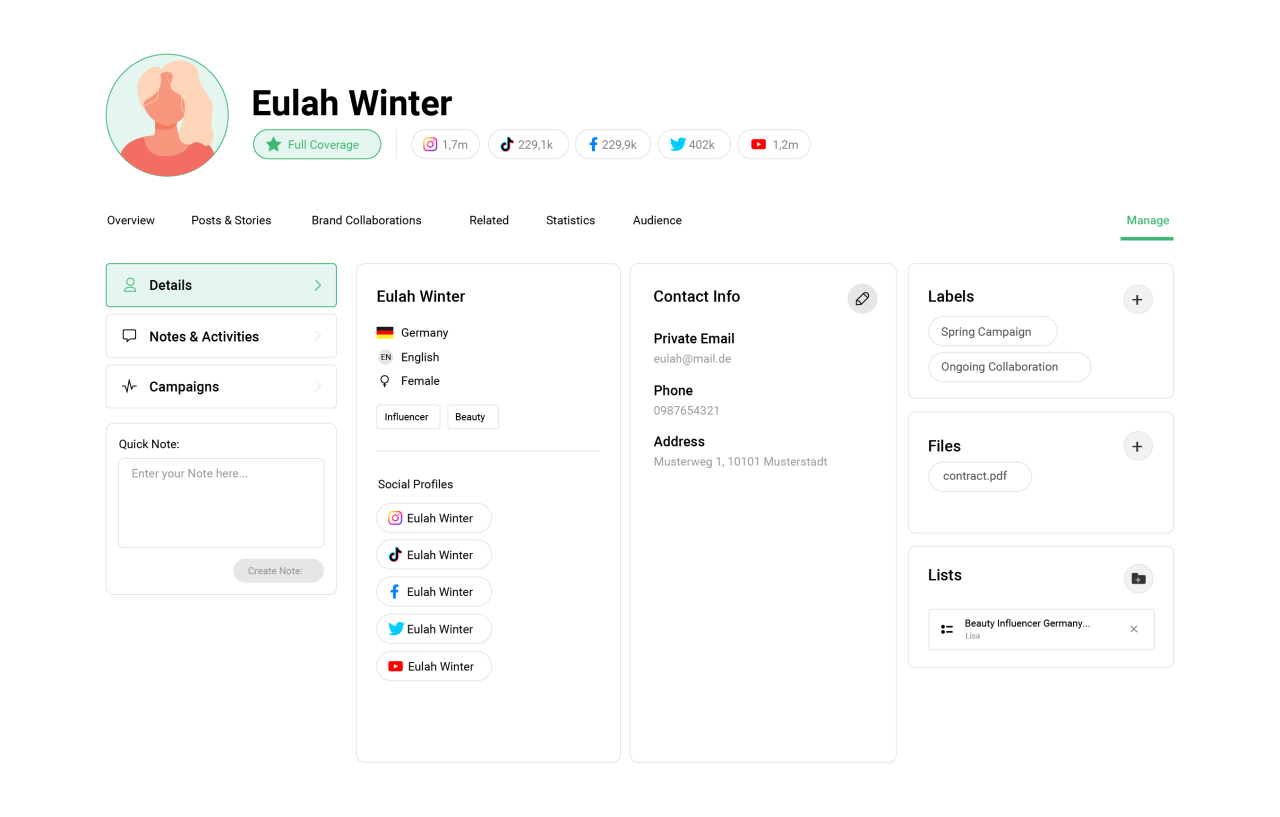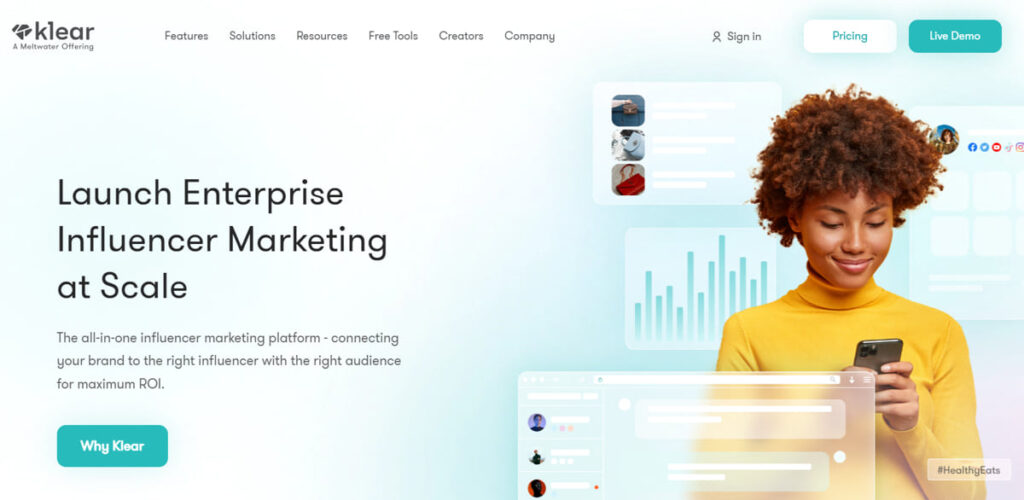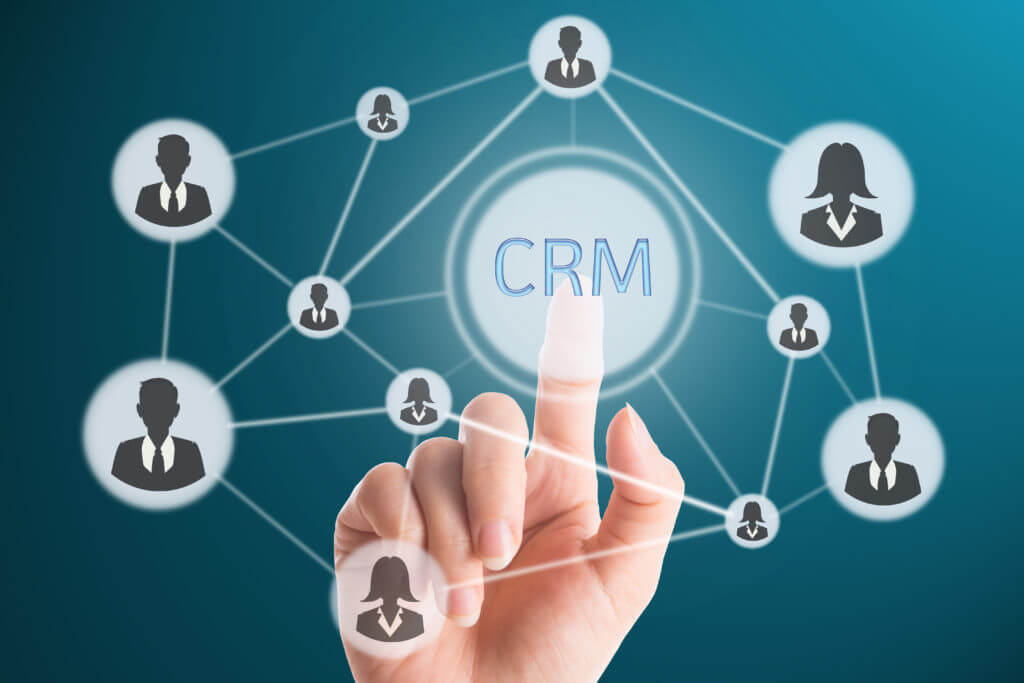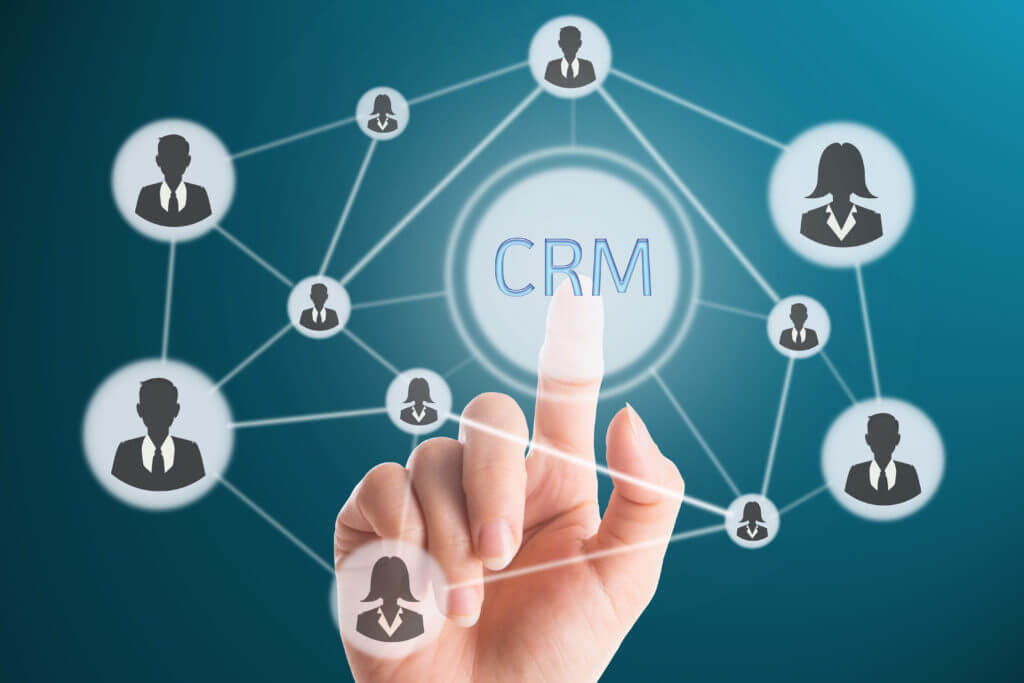Influencer marketing is booming, and managing these relationships effectively is crucial for success. This guide dives deep into Influencer CRM, exploring its functionalities, benefits, and implementation strategies. We’ll examine how these platforms streamline communication, optimize campaigns, and maximize ROI.
From defining the various types of influencer CRMs to understanding their key features, this comprehensive resource will equip you with the knowledge needed to navigate the world of influencer marketing effectively. We’ll also analyze case studies and discuss future trends in the influencer CRM market.
Defining Influencer CRM

An Influencer CRM (Customer Relationship Management) system is a specialized software designed to manage relationships with influencers. It goes beyond basic contact information, providing a centralized platform for tracking, organizing, and analyzing interactions with various influencers. This allows brands to streamline their influencer marketing strategies, from initial outreach to campaign execution and ongoing relationship nurturing.This comprehensive approach to influencer management fosters stronger, more productive partnerships, maximizing the ROI of influencer marketing campaigns.
It provides a unified view of all influencer interactions, making it easier to identify high-performing influencers, track campaign performance, and optimize future collaborations.
Key Features and Functionalities
Influencer CRMs offer a range of features to streamline influencer marketing. These include robust contact management tools, enabling brands to store and organize detailed information about each influencer, including their social media handles, engagement rates, audience demographics, and past performance metrics. Advanced campaign management tools allow for scheduling, tracking, and analyzing the progress of campaigns. Furthermore, sophisticated reporting capabilities provide insights into campaign performance and influencer effectiveness.
Influencers can also benefit from features like dedicated communication channels and access to campaign materials.
Types of Influencer CRMs
Several types of influencer CRMs are available in the market, catering to different needs and budgets. Some platforms specialize in micro-influencers, while others focus on macro-influencers or a combination. The types vary based on their functionalities and pricing models. Specific features may include built-in collaboration tools, advanced analytics, or dedicated integrations with other marketing tools.
Use Cases of Influencer CRM
Influencer CRMs are valuable for various marketing strategies. Brands utilize them to manage relationships with multiple influencers, track campaign performance across various channels, and identify high-performing influencers. Furthermore, influencer CRMs help brands streamline communication, track campaign metrics, and automate tasks, such as sending personalized messages or scheduling posts. These benefits are particularly relevant for large-scale campaigns or brands with numerous influencer partnerships.
Comparison of Influencer CRM Platforms
| Feature | Platform A | Platform B | Platform C |
|---|---|---|---|
| Reporting | Detailed analytics, customizable dashboards, real-time data updates. | Basic reporting, limited customization, delayed data refresh. | Comprehensive reporting, advanced visualizations, A/B testing capabilities. |
| Collaboration Tools | Dedicated communication channels, file sharing, task management features. | Limited collaboration features, basic messaging tools. | Integrates with various communication platforms, real-time updates on project status. |
| Campaign Management | Automated scheduling, campaign tracking, budget allocation, detailed campaign progress tracking. | Basic campaign tracking, limited scheduling options. | Advanced campaign management tools, automated workflows, A/B testing options, sophisticated campaign performance analysis. |
Benefits of Using Influencer CRM

Influencer marketing has exploded in popularity, making it crucial for businesses to manage their influencer relationships effectively. A dedicated Influencer CRM system streamlines this process, offering significant advantages over manual methods. This allows businesses to nurture influencer partnerships, optimize campaigns, and maximize ROI.An Influencer CRM provides a centralized platform for managing all aspects of your influencer marketing strategy, from initial outreach to post-campaign analysis.
It acts as a single source of truth, consolidating data and communication in one place. This streamlined approach improves efficiency and facilitates more strategic collaborations.
Enhanced Communication and Collaboration
Influencer CRMs facilitate seamless communication and collaboration between brands and influencers. Features like direct messaging, task assignment, and automated notifications streamline the workflow, reducing delays and misunderstandings. This ensures that everyone is on the same page, leading to a more collaborative and productive relationship. For example, a CRM can automatically send reminders for scheduled posts or deliverables, preventing missed deadlines and keeping the entire team informed.
Improved Campaign Management and Organization
Influencer CRMs offer sophisticated campaign management tools, making the process more organized and efficient. These systems allow for detailed campaign planning, task delegation, and tracking of key performance indicators (KPIs). This streamlined process minimizes errors and allows for more focused campaign execution. For instance, a CRM can be used to track deadlines, budgets, and deliverables for each influencer, ensuring the campaign stays on schedule and within budget.
Tracking and Analyzing Campaign Performance
Influencer CRMs provide comprehensive tracking and reporting features. This allows businesses to monitor campaign performance in real-time, gaining insights into key metrics like engagement rates, reach, and conversions. Detailed reports enable businesses to understand what’s working and what’s not, making adjustments as needed to optimize results. These insights allow for data-driven decisions, maximizing the effectiveness of future campaigns.
For example, a CRM can track the number of likes, comments, and shares generated by each influencer’s posts, providing a clear picture of which influencers are driving the most engagement.
Optimizing Influencer Campaigns
An Influencer CRM provides tools for optimizing influencer campaigns in various ways. These systems can help identify high-performing influencers, track campaign performance, and measure the return on investment (ROI). This detailed analysis allows for data-driven decisions to improve future campaigns and ensure maximum results. A good example is adjusting the messaging or creative elements based on the performance data provided by the CRM.
Potential ROI Gains
- Increased Brand Awareness: Influencer collaborations can significantly increase brand visibility and reach a wider audience. This is a direct result of leveraging an influencer’s existing audience, leading to increased brand awareness.
- Improved Engagement Rates: Influencer campaigns can often boost engagement metrics like likes, comments, and shares, leading to a more interactive and engaging brand presence. This directly contributes to improving engagement.
- Higher Conversion Rates: Influencers can drive traffic to a brand’s website or landing page, increasing the chances of conversions. A strong correlation exists between influencer marketing and improved conversion rates.
- Cost-Effective Marketing: Influencer marketing, when strategically implemented through a CRM, can be a cost-effective way to reach a target audience compared to traditional advertising methods. This efficiency results in a more cost-effective marketing strategy.
- Enhanced Customer Loyalty: Influencer marketing, facilitated by an effective CRM, can help foster customer loyalty and brand advocacy. The authenticity and trust associated with influencer recommendations can drive customer loyalty.
Key Features & Functionalities

A robust influencer CRM system goes beyond simply storing contact information. It’s a crucial tool for managing the entire influencer marketing lifecycle, from initial outreach to post-campaign analysis. This section delves into the key features and functionalities essential for effective influencer collaborations.
Crucial Components of a Robust Influencer CRM
A comprehensive influencer CRM system must possess several core components to facilitate efficient campaign management. These components include a centralized database for storing influencer profiles, detailed campaign histories, and performance metrics. The system should also allow for streamlined communication, enabling direct messaging and scheduled reminders. Moreover, automated reporting tools are vital for tracking campaign progress and identifying areas for improvement.
Campaign Management Tools
Campaign management tools within an influencer CRM are essential for planning, executing, and monitoring campaigns. These tools often include features for scheduling posts, tracking campaign progress in real-time, and setting clear expectations and deadlines. Furthermore, these tools can help in the creation of personalized communication templates for outreach and post-campaign follow-up.
Communication Tools for Effective Influencer Collaboration
Effective communication is paramount for successful influencer collaborations. Influencer CRM systems must offer robust communication tools. These might include direct messaging, scheduling reminders, and automated email sequences. Features that facilitate easy sharing of briefs, assets, and feedback are also vital. A smooth communication flow ensures a positive experience for both brands and influencers.
Performance Tracking and Analysis
An influencer CRM must facilitate performance tracking and analysis to measure the success of campaigns. This includes features for monitoring engagement metrics, such as likes, shares, comments, and click-through rates. The system should also provide insights into reach and impressions. By allowing for a detailed analysis of campaign performance, brands can identify what resonates with their target audience and optimize future campaigns.
Workflow of an Influencer Campaign Using an Influencer CRM
 This flowchart depicts a typical workflow for an influencer campaign using an influencer CRM. The process starts with identifying potential influencers and creating influencer profiles. Next, campaign briefs and assets are prepared and sent to influencers. Following the campaign, engagement and performance data are collected, and reports are generated. Finally, feedback is gathered to optimize future campaigns. The cyclical nature of the workflow emphasizes the iterative approach to influencer marketing.
This flowchart depicts a typical workflow for an influencer campaign using an influencer CRM. The process starts with identifying potential influencers and creating influencer profiles. Next, campaign briefs and assets are prepared and sent to influencers. Following the campaign, engagement and performance data are collected, and reports are generated. Finally, feedback is gathered to optimize future campaigns. The cyclical nature of the workflow emphasizes the iterative approach to influencer marketing.
Specific Functionalities of Each Feature
| Feature | Description | Example |
|---|---|---|
| Contact Management | Stores and manages influencer contact information, including social media handles, email addresses, and relevant details like audience demographics and campaign history. | Storing an influencer’s Instagram handle, email, and past campaign performance data in a centralized profile. |
| Campaign Tracking | Provides a platform to track campaign progress, manage timelines, and monitor key performance indicators (KPIs) like reach, engagement, and conversions. | Tracking the number of impressions, likes, and shares generated by a campaign post. |
| Performance Reporting | Generates detailed reports on campaign performance, enabling brands to analyze data, identify successful strategies, and measure ROI. | Generating a report showing the overall reach, engagement rate, and click-through rate for a campaign. |
Implementation & Integration
Successfully implementing an Influencer CRM requires a strategic approach that aligns with your existing marketing infrastructure. A well-planned implementation process ensures a smooth transition and maximizes the system’s benefits. This involves careful consideration of data migration, integration with existing tools, influencer onboarding, and staff training.Implementing an Influencer CRM effectively involves several key steps. A phased approach is often recommended, allowing for a controlled rollout and minimizing disruption to your workflow.
Thorough planning and clear communication throughout the process are crucial for a positive outcome.
Step-by-Step Implementation Guide
This phased approach allows for a controlled rollout and minimized disruption to existing workflows. A phased implementation is recommended, starting with a pilot program with a select group of influencers and a limited set of features. This allows for testing, adjustments, and refinements before a full-scale launch.
- Phase 1: Planning and Assessment
-This phase focuses on understanding your current influencer marketing strategy and identifying the CRM’s specific needs. This involves defining clear objectives, identifying key metrics for success, and mapping out the project timeline. - Phase 2: Data Migration
-This critical step involves transferring existing influencer data into the new CRM system. Carefully plan this migration to avoid data loss or corruption. Use a robust data migration tool, and verify data accuracy after the transfer. - Phase 3: Integration and Setup
– This stage focuses on integrating the CRM with your existing marketing tools. This may involve API connections, data feeds, or other methods. This is followed by setting up user roles, permissions, and workflows within the system. - Phase 4: Influencer Onboarding
-This phase involves onboarding influencers into the CRM system, including providing necessary access and instructions. Ensure clear communication and support to facilitate a smooth transition. - Phase 5: Training and Support
-This is crucial for maximizing the system’s effectiveness. Providing comprehensive training for staff using the CRM system is essential. This includes hands-on sessions, documentation, and ongoing support. - Phase 6: Monitoring and Evaluation
-Regularly monitor the CRM’s performance against your predefined metrics and objectives. Make adjustments as needed to optimize the system’s effectiveness.
Importance of Data Migration
Accurate and complete data migration is fundamental to the CRM’s success. Incorrect data can lead to inaccurate campaign analyses and inefficient influencer management. Careful attention to detail is essential during this process.
A comprehensive data migration plan should Artikel the process, including data mapping, validation, and verification. This plan should also consider potential data loss or corruption risks and mitigation strategies.
Integrating with Existing Marketing Tools
Integration with existing marketing tools streamlines workflows and improves data visibility. This can be achieved through APIs, data feeds, or other integration methods. A well-integrated system will improve efficiency and reduce manual data entry.
- API Integrations
– APIs allow seamless data exchange between the CRM and other tools, such as email marketing platforms, social media management tools, and analytics dashboards. - Data Feeds
– Automated data feeds can transfer information like campaign performance metrics and influencer engagement data, reducing manual effort. - Custom Integrations
– In some cases, custom integrations may be required to connect the CRM with specialized tools or systems.
Influencer Onboarding Process
The onboarding process should be structured and efficient. It should involve clear communication, necessary access, and initial training. This process should ensure a smooth and positive experience for new influencers.
- Welcome Package
– Provide a welcome package with instructions, guidelines, and access credentials. - Onboarding Checklist
– Use a checklist to track progress and ensure all necessary steps are completed. - Dedicated Onboarding Manager
– Assign a dedicated manager to support influencers throughout the onboarding process.
Staff Training Procedures
Comprehensive training is essential for effective CRM usage. It should cover system functionality, data entry procedures, and best practices for influencer management.
- Initial Training Sessions
– Conduct initial training sessions covering all aspects of the CRM system. - Hands-on Exercises
– Provide hands-on exercises to practice using the system and applying best practices. - Ongoing Support
– Offer ongoing support and resources to address questions and concerns.
Best Practices for Setup and Configuration
A well-configured CRM will enhance productivity and efficiency. Thorough planning and attention to detail are essential.
- Define Clear Roles and Permissions
– Establish clear roles and permissions for users to control access and responsibilities. - Establish Reporting Mechanisms
– Set up effective reporting mechanisms to track performance and measure success. - Regular System Audits
– Conduct regular system audits to identify areas for improvement and ensure optimal performance.
Case Studies & Examples
Influencer marketing has become a crucial element in modern brand strategies. Successful campaigns often rely on efficient management tools, and Influencer CRMs play a vital role in achieving optimal results. This section explores real-world examples of brands leveraging Influencer CRMs to boost brand awareness, drive engagement, and ultimately, increase sales.Leveraging a dedicated Influencer CRM can streamline the entire process, from initial influencer identification to campaign reporting.
Brands using these platforms often report significant improvements in campaign efficiency and ROI.
Successful Campaign Examples
Brands across various industries have successfully employed influencer CRMs to achieve their marketing objectives. A beauty brand, for instance, used an influencer CRM to identify and engage micro-influencers who aligned with their target audience. By utilizing the CRM’s campaign management features, they organized and tracked campaign performance in real-time, allowing for adjustments as needed.
Influencer Selection Process
An effective influencer selection process is a cornerstone of any successful campaign. Influencer CRMs streamline this process by enabling brands to search for and filter influencers based on various criteria. These criteria might include follower demographics, engagement rates, niche expertise, and previous campaign performance. This streamlined selection process ensures that brands connect with influencers who resonate with their target audience and campaign objectives.
Campaign Creation and Management
Influencer CRMs facilitate the creation and management of influencer campaigns, offering features for task assignment, communication, and payment tracking. For instance, a fashion retailer used an Influencer CRM to create a series of themed campaigns targeting specific demographics. The CRM allowed for personalized communication with each influencer, ensuring alignment with campaign goals and deadlines. The platform’s reporting tools also tracked campaign performance, enabling real-time adjustments.
Importance of Metrics and Reporting
Detailed metrics and reporting are critical for understanding campaign performance and ROI. Influencer CRMs typically provide comprehensive dashboards and reports, enabling brands to track key metrics like impressions, engagement, reach, and conversions. A sports equipment brand, for example, utilized an influencer CRM’s reporting capabilities to assess the effectiveness of various influencer collaborations. The insights gained from these reports allowed the brand to refine its strategies and allocate resources more efficiently.
Future Trends & Predictions
Influencer CRM platforms are constantly evolving to meet the dynamic demands of the influencer marketing landscape. Emerging technologies and shifting market needs are driving innovation, promising more sophisticated and effective tools for managing influencer relationships. This section explores the future direction of influencer CRM technology, highlighting key trends and predictions.
Emerging Trends in the Influencer CRM Market
The influencer marketing industry is experiencing a period of rapid evolution. New platforms and strategies are emerging, demanding adaptable influencer CRM solutions. Key trends include a greater emphasis on data-driven insights, the integration of AI and machine learning, and a focus on creating more personalized and targeted influencer campaigns.
Role of AI and Machine Learning in Influencer CRMs
Artificial intelligence (AI) and machine learning (ML) are poised to revolutionize influencer CRM platforms. AI-powered tools can analyze vast amounts of data to identify high-performing influencers, predict campaign success, and automate tasks like campaign scheduling and performance tracking.
Future Direction of Influencer CRM Technology
Influencer CRM technology is projected to become increasingly sophisticated and integrated. Expect greater automation, predictive analytics, and a stronger emphasis on personalized influencer engagement. This will allow brands to optimize influencer campaigns and improve ROI. Examples include automated campaign reporting and real-time performance dashboards.
Impact of Emerging Technologies on Influencer Marketing
Emerging technologies, such as augmented reality (AR) and virtual reality (VR), are already influencing the way brands interact with their audiences. Influencer CRMs will need to adapt to these technologies to offer tools for managing and leveraging these opportunities. For example, influencer CRMs may include functionalities for AR/VR campaign management.
Adaptation of Influencer CRMs to Changing Market Needs
The influencer marketing industry is constantly adapting to changing consumer preferences and technological advancements. Influencer CRMs must evolve to remain relevant. This includes offering enhanced analytics capabilities, more sophisticated campaign management tools, and better integration with other marketing platforms. Furthermore, influencer CRMs will need to incorporate diverse metrics for evaluating influencer performance beyond engagement and reach.
Forecast of Future Features and Functionalities in Influencer CRMs
Future influencer CRMs are predicted to incorporate more advanced features and functionalities. These will include:
- AI-powered influencer identification and matching: Algorithms will identify influencers best suited for specific campaigns, optimizing campaign ROI.
- Predictive analytics for campaign performance: CRMs will leverage data to predict campaign success and optimize strategies accordingly.
- Automated campaign management: Tasks like scheduling, tracking, and reporting will be automated to streamline workflows and save time.
- Enhanced data visualization and reporting: CRMs will provide more intuitive and comprehensive dashboards to monitor campaign performance.
- Integration with other marketing platforms: Seamless integration with social media management tools, email marketing platforms, and other marketing automation tools will improve efficiency.
Ultimate Conclusion
In conclusion, Influencer CRM platforms are essential tools for modern marketing strategies. They empower businesses to cultivate strong influencer relationships, manage campaigns with precision, and track performance meticulously. Understanding the nuances of these platforms, from implementation to optimization, will allow you to maximize ROI and stay ahead of the curve in the dynamic influencer marketing landscape.
FAQ Compilation
What are some common mistakes businesses make when implementing an Influencer CRM?
Failing to clearly define goals, neglecting thorough influencer onboarding, and not establishing consistent reporting procedures are common pitfalls. A lack of comprehensive training for staff using the platform can also hinder success.
How can an Influencer CRM improve campaign management?
Influencer CRMs centralize campaign data, enabling better organization, streamlined communication, and more efficient tracking of progress. They provide a holistic view of performance, facilitating data-driven adjustments and ultimately optimizing campaign results.
What is the typical ROI timeframe for influencer campaigns managed through an Influencer CRM?
ROI timelines vary based on industry, campaign goals, and influencer engagement. While some campaigns might see results relatively quickly, a more comprehensive ROI evaluation often takes several weeks or months to fully assess.
What are the essential metrics to track when using an Influencer CRM?
Key metrics include engagement rates (likes, comments, shares), reach (impressions and audience growth), conversion rates, and overall campaign performance against pre-defined KPIs. Regular reporting and analysis of these metrics are essential for effective optimization.






